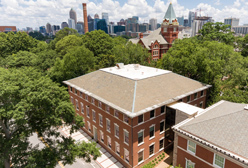Sponsored Research
The Program on Strategic Stability Evaluation (POSSE): Re-Thinking Stability Criteria Along the "Road to Zero" has received renewal funding of $591,600. Adam Stulberg, Professor in the Sam Nunn School of International Affairs, is Principal Investigator with Co-PI, William C. Potter of the Monterey Insitute of International Studies.
The Kauffman Foundation has awarded $48,426 to John Walsh, Associate Professor in the School of Public Policy, for a research project, "Commercialization of Academic Science in a Changing Policy Environment: A Quasi-Experiment."
The ICTD Peer Mentorship Program has been awarded $134,473. Michael Best, Associate Professor in the Sam Nunn School of International Affairs and in the School of Interactive Computing, is the Principal Investigator. The Co-PI is Ellen Zegura, Professor and Chair of the School of Computer Science.
Project GO: ROTC Language and Culture Project has received an additional $116,121. Patrick McCarthy, Interim Chair of the School of Modern Languages and Professor in the School of Economics, is the Principal Investigator.
GTRI has awarded $19,405 to Homeland Open Security Technology, a sub-project of the Naval Space and Naval Warfare Systems Center. Douglas Noonan, Associate Professor in the School of Public Policy, is the Principal Investigator.
Books by Faculty
Feminist Rhetorical Practices: New Horizons for Rhetoric, Composition, and Literacy Studies (Southern Illinois Press) by Jacqueline J. Royster, Dean, Ivan Allen College of Liberal Arts, and Gesa E. Kirsch, Bentley University, shows how feminist rhetorical practices have shifted methodologies, ethics, and research in the field, contextualizes these shifts, and offers an enhanced analytical model for feminist rhetorical inquiry, as well as for broader rhetorical studies.
Revolutionary Womanhood: Feminisms, Modernity, and the State in Nasser's Egypt (Stanford University Press) by Laura Bier, Assistant Professor, School of History, Technology, and Society. The first major historical account of gender politics during the Nasser era, Bier's work analyzes feminism as a system of ideas and political practices, international in origin but local in iteration.
What Does Georgia Tech Think?
Selected Press for Ivan Allen College of Liberal Arts
|
Kosal on North Korea's New Leader
"There is so much uncertainty with the future of North Korea and the future of [Kim Jong Il's] son, Kim Jong Un, as the new ruler," said Margaret Kosal, Assistant Professor in the Sam Nunn School of International Affairs. Kosal continued, "This is the big question that's going through all of the minds in DC, in Beijing, in South Korea, in Japan. What's going to happen for the future and will the heir apparent be able to maintain stability within the North Korea state." Source: KABC Los Angeles December 19, 2011. Listen to the radio show with Dr. Kosal.
Stamatiou on Tech Start-Up Locations
The BBC spoke to U.S. entrepreneurs about why they chose San Francisco versus New York City as the location for their tech startup company..."Paul Stamatiou, co-founder of Picplum [a graduate of the Computational Media program in IAC's School of Literature, Communication, and Culture] wants families to stay connected by printing and shipping their favourite photos to friends and relatives. After graduating from college in Atlanta, he decided there was only one place for him to start a company and moved to San Francisco." Source: BBC, December 12, 2011
February 16, 2012
5:00 pm
February 16, 2012
5:30 pm
February 16, 2012
6:30 pm
February 17, 2012
2:00 pm
February 20, 2012 - February 24, 2012
9:00 am
February 23, 2012
11:00 am
February 24, 2012
4:00 pm
February 27, 2012
5:00 pm
February 29, 2012
12:30 pm
March 12, 2012 - March 15, 2012
4:00 pm
March 26, 2012 - April 5, 2012
7:00 pm
|
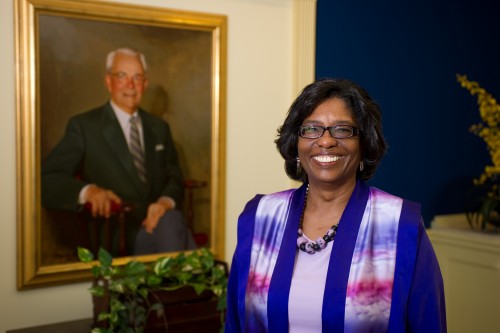
|
2012 Founder's Day To Celebrate Mayor Allen Inauguration and Honor William H. Foege
I am pleased to invite you to join the 2012 Ivan Allen College of Liberal Arts Founder's Day events on March 14-15 as we celebrate a watermark in the history of Atlanta, the state of Georgia, and the international human rights dialog – the inauguration of Ivan Allen, Jr. as Mayor of Atlanta (1962-1970).
Mayor Allen was a man undeterred by the seemingly insurmountable challenge of changing the racially segregated socio-economic system of the Old South. His belief in social justice and in transforming racial paradigms led him to risk everything to act as an ally in insuring the civil rights of all citizens and as a pivotal advocate for the making of a new, more vibrant South.
The Ivan Allen College of Liberal Arts Founder’s Day highlights our ongoing work engaging the citizens of Atlanta, our state and nation, and the global community with the Allen legacy of socially and ethically conscious action. In 2012, we will bring that legacy vibrantly to life by honoring a man who, for 60 years, has transformed human health around the world and in so doing, like Mayor Allen, has helped to transform our paradigm of what is possible. Georgia Tech President, G. P. “Bud” Peterson will join me in presenting the Ivan Allen Jr. Prize for Social Courage to William H. Foege, a transformational leader in global health who enabled the eradication of smallpox and other diseases worldwide and who is a champion for compassion in science.
Our events include the Allen Prize Symposium: "Global Health and the Challenge of Hope" on March 14 which brings together an extraordinary constellation of leaders in global health to honor the vision and lifeworks of Dr. Foege. March 15, we begin the day with a research roundtable, "Compassion in Global Health," that will highlight health and humanitarian goals and healthcare policy and economics. Our awards luncheon follows with the presentation of the Ivan Allen Jr. Legacy Awards to faculty, students, and an alumnus, and the presentation of the Ivan Allen Jr. Prize for Social Courage to Dr. Foege.
Invitations will be forthcoming. In the meantime, I hope that you will visit our Founder’s Day pages to explore this year's program. Through this celebration recognizing the extraordinary work of our colleagues, students, and global leaders, we, like Mayor Allen and Dr. Foege, endeavor to raise ever higher the lantern of hope for improvement of the human condition and to embrace the future with courage, good conscience, and conviction.
Sincerely,
Jacqueline Jones Royster
Ivan Allen Jr. Dean's Chair in Liberal Arts and Technology
Ivan Allen College of Liberal Arts
|
Policy@Tech: A Force Multiplier for Impacting Policy Decisions
An important step toward Georgia Tech's vision for global leadership as the 21st century research university is unfolding under the new Policy@Tech consortium.
Policy@Tech brings together more than 60 faculty and leaders from the Institute, colleges, and research centers across campus with a goal of increasing the Institute’s influence on policy decisions that address global challenges.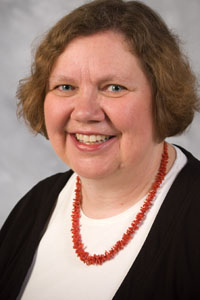
“By coalescing these individuals and groups, we have the opportunity to network and to leverage work in priority areas and thus, elevate the Institute’s ability to shape state and national discussions on critical global challenges,” said Susan Cozzens, Professor in the School of Public Policy and Associate Dean for Research Ivan Allen College of Liberal Arts (IAC). Cozzens facilitates the consortium.
All of the Policy@Tech campus partners have served in government or on government advisory bodies, so a key strategy is to utilize that ‘insider’ knowledge. Additionally, the group is working to raise the visibility of Georgia Tech’s policy-related research both interally and externally and to catalyze faculty and student interaction with decision-makers.
The Policy@Tech centers are the Center for Advanced Communications Policy (CACP), the Center for International Strategy, Technology, and Policy (CISTP), and the Technology Policy and Assessment Center (TPAC), all of which are housed in the Ivan Allen College of Liberal Arts; the Office of Policy Analysis and Research (OPAR) in GTRI and the Science, Technology, and Innovation Policy Program (STIP) housed in the Enterprise Innovation Institute.
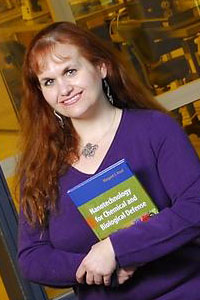 Policy@Tech launched a campus speaker series last January. The 2011-2012 series kicked off in November with Amy Pritchett speaking on “The Intersection of Technology and Policy in Aviation Safety” (video available on SmarTech, http://hdl.handle.net/1853/42031). Pritchett is the David S. Lewis Associate Professor of Cognitive Engineering, Aerospace Engineering Joint Associate Professor Industrial and Systems Engineering, and a former Director of NASA's Aviation Safety Program. On January 24th the topic was “Biotechnology and National Security: the Role of the Scientist/Engineer in Washington.” Speakers were Margaret E. Kosal, Assistant Professor in the Sam Nunn School of International Affairs who served as Science and Technology Advisor in the Office of the Secretary of Defense as an American Association for the Advancement of Science (AAAS) Science and Technology Fellow, and Rob Butera, Professor in the College of Engineering who served in the Department of State’s Office of Chemical and Biological Weapon Threat Reduction as a Jefferson Science Fellow. Policy@Tech launched a campus speaker series last January. The 2011-2012 series kicked off in November with Amy Pritchett speaking on “The Intersection of Technology and Policy in Aviation Safety” (video available on SmarTech, http://hdl.handle.net/1853/42031). Pritchett is the David S. Lewis Associate Professor of Cognitive Engineering, Aerospace Engineering Joint Associate Professor Industrial and Systems Engineering, and a former Director of NASA's Aviation Safety Program. On January 24th the topic was “Biotechnology and National Security: the Role of the Scientist/Engineer in Washington.” Speakers were Margaret E. Kosal, Assistant Professor in the Sam Nunn School of International Affairs who served as Science and Technology Advisor in the Office of the Secretary of Defense as an American Association for the Advancement of Science (AAAS) Science and Technology Fellow, and Rob Butera, Professor in the College of Engineering who served in the Department of State’s Office of Chemical and Biological Weapon Threat Reduction as a Jefferson Science Fellow.
Upcoming speakers include Christine Ries (Economics) on February 24th speaking on how to do analysis of tax policy and Mike Meyer (Civil Engineering) on March 8th discussing engineers in the world of transportation policy. For details, visit http://www.iac.gatech.edu/research/policy-at-tech or the IAC or Georgia Tech calendars.
|
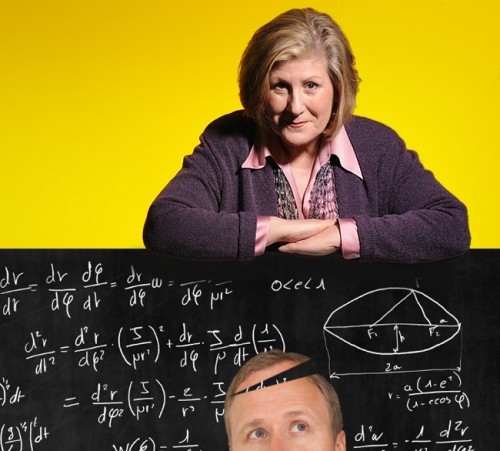
|
Nancy Nersessian Examines How Scientists Think
IAC worked with ScienceLives to prepare this article which is currently posted on LiveScience in partnership with the National Science Foundation.
Nancy J. Nersessian's research is driven by the question "How do scientists think?" Nersessian's research focuses on how the cognitive and learning practices of scientists and engineers lead to creative and innovative outcomes. She is a Regents' Professor of Cognitive Science at the Georgia Institute of Technology with joint appointments in the Ivan Allen College of Liberal Arts School of Public Policy and the College of Computing School of Interactive Computing.
Her research supports the insight that scientists think not only with ideas, but also with the artifacts they create to investigate nature. Nersessian is one of the pioneers of the interdisciplinary field of cognitive studies of science and technology, which comprises psychologists, philosophers of science, artificial intelligence researchers and cognitive anthropologists.
What inspired you to choose this field of study?
I loved math from the moment I encountered it. I developed a passion for physics early on when my curiosity was piqued about Einstein. I wanted to be able to understand his mysterious theory and what it said about the universe. Later, I became curious about how he — or anyone —could create a totally new theory.
So, I was inspired to study math and physics, but in retrospect this was the beginning of my life as a philosopher and cognitive scientist. I just didn't know those fields existed. I started college as a physics major, but the way the courses were taught made them boring for me. I discovered philosophy through being required to take an introductory course as a junior. I accidentally signed up for one with a highly regarded philosopher of physics. He taught the course as an introduction to the philosophy of space and time. I was hooked — I changed to a double major in physics and philosophy, and headed to graduate school to study the philosophy of physics.
In pursing the problems that interested me about how theories were created, I began to wonder about how the human mind reasons and imagines, and that led me to the new field of cognitive science. So, I wouldn't say I 'chose' my field of study. It's more like I've stumbled into it through wanting to understand something.
What is the best piece of advice you ever received?
The best advice I ever received came from my mentor, Howard Stein, now an Emeritus Professor at the University of Chicago, when I started grad school. He said: Don't just read what philosophers say about science, read the scientists themselves.
As a physics student, it had never occurred to me that it was possible to read the writings of the people who had created the theories in the textbooks. I hadn't realized there were historical records such as diaries, notebooks, paper drafts and correspondence, all of which could provide insights into how their theories were constructed. I was surprised when I first encountered the numerous sketches in Faraday's diary, the analogical models in Maxwell's writings and Einstein's use of thought experiments. These didn't fit the view of "the scientific method" I'd been indoctrinated with, and yet I was convinced that they were key to understanding how scientists think creatively.
What was your first scientific experiment as a child?
I never did experiments and I really didn't like science labs in school, especially biology labs. Anyone who was paired with me in science lab was unfortunate and often in danger since I was quite clumsy. I was always theoretically oriented. I won third place in the Boston Science Fair for my project which was a mathematical analysis of hyperbolic and elliptical functions.
What is your favorite thing about being a researcher?
That's hard to choose since there are several. One is having the freedom to pursue my intellectual interests wherever they lead me. I love the feeling of satisfaction that comes with finally understanding something after a long struggle with a problem. Closely related, is that I am continually learning new things in trying to address those problems.
Another is that having research funding enables me to hire Ph.D. students, postdocs, and research scientists, and so I get to select the people that work most closely with me. Although people leave and join, there's always a group of creative interdisciplinary people and we have a great deal of fun thinking together.
What is the most important characteristic a researcher must demonstrate in order to be an effective researcher?
What I tell my Ph.D. students is that they need to have real intellectual problems driving their research and feel a passion for the research that will sustain them through the hard work, failures, and difficulties that they will inevitably encounter along the way.
What are the societal benefits of your research?
A major societal benefit is the part of my research that aims to improve undergraduate and graduate science education. My own disappointment as a physics student and my experiences as a teacher finding students who are passionate about science when they enter the university — and who are quickly turned off— piqued my interest in creating more effective approaches to science education.
I took encouragement from the fact that my early research on conceptual change and model-based reasoning was influencing K-12 science education researchers. I wanted to explore what could be done at the university level, and was struck by the facts that research labs are largely populated by graduate students and undergrads and that, along various measures, they appear to be quite successful sites of learning.
Together with Wendy Newstetter, also a researcher at the Georgia Institute of Technology, I embarked on designing a "translational model of learning research." We investigate cognitive practices in interdisciplinary engineering science labs, what is required to learn these, and what factors in the "learning ecology" of the labs support and sustain creative research. Along with science and engineering faculty, we develop ways of translating these into instructional settings so as to promote learning.
Who has had the most influence on your thinking as a researcher?
Being an interdisciplinary researcher, there have been several people who have had significant influences on my thinking, and I have continued to encounter others as my research has taken new directions, but, I think the best answer is simply: my teachers. As far back as I can remember, there has always been a teacher who encouraged my interests and aspirations. I was the first in my family to go to college. I had scholarships for tuition, but had to work to support myself. I would not have considered going, and might not have stuck with it through the hard times, if it were not for the encouragement of teachers I encountered along the way. I'm grateful to all of them.
What about your field or being a researcher do you think would surprise people the most?
How difficult research is, how much focus it requires and time it consumes, and how much fun hard work can be.
If you could only rescue one thing from your burning office or lab, what would it be?
It would have to be two things: my laptop and my brother David's Purple Heart, which I keep next to the laptop on my desk to remind me of him and of how fortunate I was to have gone to college and not to fight in Vietnam.
What music do you play most often in your lab or car?
I can't have music playing when I work because I get absorbed into it. In my car and home I listen mostly to classical vocal music and opera. For much of my life, my avocation was singing and I trained and performed to near professional level in recitals and operas. Now I sing along in my head as I listen.
To learn more about Nersessian's research, read Creating Scientific Concepts (MIT Press, 2008) and Science as Psychology: Sense-making and Identity in Science Practice (co-authored with research group members L. Osbeck, K. Malone and W. Newstetter; Cambridge University Press 2011).
|
Four IAC Faculty Honored at GTRC 75th Anniversary
Four IAC faculty members were presented with awards during the 75th Anniversary Gala Celebration of Georgia Tech Research Corporation.
The awards were presented for Excellence in Research, Industry Engagement, and Technology Transfer.
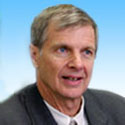 Big Data Award Big Data Award
Alan L. Porter, Professor Emeritus, Schools of Public Policy and Industrial & Systems Engineering
The Big Data Award recognizes a Georgia Tech researcher or research group that has successfully established a strong research relationship with industry and commercialized technology for the management and application of large complex datasets to solve problems in society and industry and, in so doing, developed new tools and methods for capture, storage, analysis, searching, and visualization of information.
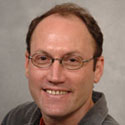 People and Technology Award People and Technology Award
Michael L. Best, Associate Professor, The Sam Nunn School of International Affairs and School of Interactive Computing
The People and Technology Award honors the efforts of Georgia Tech researchers whose pursuit of research in the interaction between humans and technology demonstrates a transformative societal impact in improving the human condition.
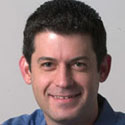 Public Service, Leadership, and Policy Award Public Service, Leadership, and Policy Award
Dan Breznitz, Associate Professor, The Sam Nunn School of International Affairs, and the College of Management, and Associate Professor by courtesy at the School of Public Policy
The Public Service, Leadership, and Policy Award recognized a Georgia Tech researcher or research group that has made a significant contribution to the study of innovation and policies that promote and sustain research for public benefit.
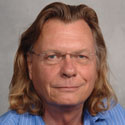 Innovation in Literature and Communication Award Innovation in Literature and Communication Award
Thomas N. Lux, Professor, School of Literature, Communication, and Culture; Founder and Director of Poetry@Tech
The Innovation in Literature and Communication Award is given in recognition of innovation in communication and literature in science, engineering, and technology.
The Gala Celebration Honoring Innovators and Inventors and GTRC for 75 years of Service to Georgia Tech Faculty took place December 12, 2011 at the Georgia Tech Hotel and Conference Center Ballroom.
|
Levine Appointed to Institute of Medicine Committee
|
|
Aaron Levine, Assistant Professor in the School of Public Policy, has been appointed to the National Academies Institute of Medicine committee that is tasked with evaluating the California Institute for Regenerative Medicine (CIRM). The committee will assess CIRM's programs, operations, strategies, and performance since its inception in 2005 and will deliver a final report at the end of 2012. Read more on the National Academies website. |
Clark Appointed to SPIE Committee
|
|
Jennifer Clark, Associate Professor in the School of Public Policy, has been appointed to the 2012 Engineering, Science & Technology Policy Committee (ESTeP) of the International Society for Optics and Photonics (SPIE). The ESTeP promotes understanding at all levels of policy decision-making about those issues that affect the well-being of the optical science and engineering communities worldwide. This committee also advises the SPIE Board and other Society groups on ways to expand the Society's role in science and engineering policy. Founded in 1955 and with current membership of more than 180,000 constituents in more than 170 countries, SPIE advances an interdisciplinary approach to the science and application of light. |
Krige Wins 2011 McElvany Nonproliferation Challenge
|
|
HTS Professor John Krige has won the Doreen and Jim McElvany 2011 Nonproliferation Challenge for his essay “The Proliferation Risks of Gas Centrifuge Enrichment at the Dawn of the NPT: New Light on the Negotiating History.” An initiative of The James Martin Center for Nonproliferation at the Monterey Institute of International Studies, Middlebury College, the competition is designed to publish the most outstanding new thinking in the nonproliferation field. Krige, who is Kranzberg Professor of the History of Technology and Director of Graduate Studies in the School of History, Technology, and Society, utilized overlooked archival sources to reassess the concerns of the negotiators of the Treaty on the Non-Proliferation of Nuclear Weapons (NPT) regarding the proliferation potential of gas centrifuges for uranium enrichment. (Unlike other enrichment technologies, gas centrifuges are relatively inexpensive to build and operate; they also require significantly less space and consume less electricity, making them harder to detect.) Contrary to popular belief, wrote Krige, the negotiators—particularly in the United States and United Kingdom—debated the issue extensively. The United States believed the risk could be managed via classification, safeguards, and a focus on peaceful uses, while the British worried that secret centrifuge operations would undermine the treaty. Krige has long been engaged in nuclear matters and viewed the McElvany competition as an opportunity to use historical insights to enrich current proliferation debates. “Deep personal satisfaction apart, this success has vindicated the importance of history to policy, and the value of crossing disciplinary boundaries and of breaking national frames of analysis.” An essay by Lyndon Burford, a Ph.D. candidate at the University of Auckland, New Zealand, was also selected a 2011 winner. |
Rowe Selected for CHOA Legislative Committee
|
|
B. J. Davis Rowe, Visiting Associate Professor in the School of Public Policy, has been selected to join the Children's Healthcare of Atlanta (CHOA) Legislative Committee. The committee examines federal and state issues relating to and aligning with the CHOA's Government Affairs Strategic Plan and puts forth recommendations on proposed policy and program implementation. |
Baker Joins Georgia Tech Education Innovation Center
|
|
Georgia Tech’s Center for 21st Century Universities (C21U) tapped School of Public Policy Adjunct Professor Paul M.A. Baker as its Associate Director. The Center functions as Georgia Tech’s experimental “laboratory for fundamental change in universities” with a mission “to foster and accelerate the invention, validation, adoption, and deployment of disruptive ideas in higher education.” Formerly the Director of Research at the Center for Advanced Communications Policy (CACP) housed in the IAC School of Public Policy (SPP), Baker brings to his new role expertise in communication and social media policy, educational technology and institutional change, online communities, and e-accessibility and disability policy. He is on the faculty of IPaT and the GVU Center at Georgia Tech and continues as the Project Director of Policy Initiatives for the Rehabilitation Engineering Research Center (RERC) on Workplace Accommodations. |
Bayor's Multicultural America Named a Best Reference
|
|
The 2011 Booklist Editors’ Choice awards for Reference Sources includes Multicultural America: An Encyclopedia of the Newest Americans (Greenwood/ABC-CLIO, 2011), by Ronald Bayor, Professor of History in the School of History, Technology, and Society. Booklist wrote about Bayor's work, "With well-written and easy-to-understand essays, this encyclopedia includes 50 entries on America’s newest immigrants and would make an excellent addition to public, academic, and high-school libraries." Booklist is a book-review magazine that has been published by the American Library Association for more than 100 years, and is widely viewed as offering the most reliable reviews to help libraries decide what to buy and to help library patrons and students decide what to read, view, or listen to. |
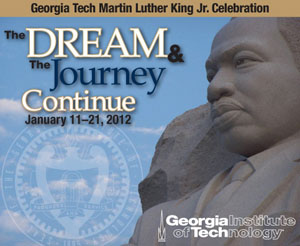
|
Reflections on Martin Luther King, Jr. and the Civil Rights Struggle
As the nation celebrated the unveiling of the Martin Luther King, Jr. memorial in Washington, D.C., Georgia Tech rededicated itself to the enduring values and legacy of this civil right leader. Ivan Allen College of Liberal Arts was a sponsor of the 11-day campus celebration, “The Dream and The Journey Continue.” Among the highlights were keynote speaker Myrlie Evers-Williams and a commemorative field trip to the Civil Right Memorial Center in Montgomery, Alabama attended by more than 40 IAC faculty and students.
During the kick-off event January 11, Vice President for Institute of Diversity, Archie Ervin, reflected on the occasion as a window to “connect opportunities for all” and to "reflect and inspire the collective work of all of us to make the King dream a reality.”
Georgia Tech President G. P. “Bud” Peterson highlighted that the freshman reading assignment for the 2011-2012 academic year focuses on the writings and speeches of Martin Luther King, Jr. Noting Atlanta’s significance as the birthplace of the American civil rights movement and the work of King, Medgar Evers, and other civil rights activists, Peterson said, “While they are gone, their work lives on… Dr. King’s writings and speeches helped shape our world as we know it today and are as pertinent today as when they were written. They provide us the opportunity and inspiration to reflect, renew, and resolve that the dream continue.”
Elle Creel, President of the Georgia Tech Undergraduate Student Government Association, noted that, in 1957, Georgia Tech students were described as “too busy to hate.” Creel called for students to go beyond being too busy “to being engaged as part of the solution.”
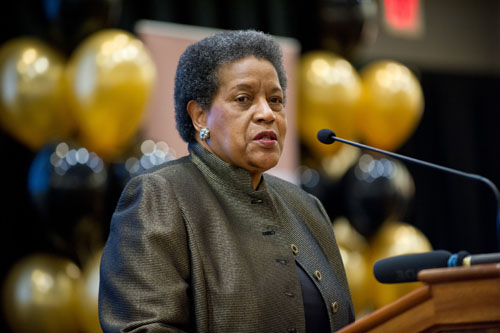 As co-chair of the events planning committee, Dean Jacqueline J. Royster introduced keynote speaker Myrlie Evers-Williams, widow of murdered civil rights leader Medgar Evers. Royster highlighted Evers-Williams “life of activism, compassion, leadership, social responsibility, courage, and commitment.” As co-chair of the events planning committee, Dean Jacqueline J. Royster introduced keynote speaker Myrlie Evers-Williams, widow of murdered civil rights leader Medgar Evers. Royster highlighted Evers-Williams “life of activism, compassion, leadership, social responsibility, courage, and commitment.”
Evers-Williams made the case that the role of women in civil rights has been underemphasized noting that, “Women have been the backbone of social change.” She shared that she, Coretta Scott King, and Betty Shabaz, had shared common perspectives as young widows of murdered African American civil rights activists and confessed that at the time of her husband’s death, she had a desire for violent revenge which she kept hidden from others.
“The blood never came off of the driveway,” she said.
Evers-Williams was indefatigable in fighting for the three trials that it took to bring her husband’s killer to justice. She encouraged listeners to push through “battle fatigue.”
“We need to keep Martin’s thoughts alive. We need to be aware of those things that he stood for and died for. Those things are slipping away.”
Evers-Williams said that she must often respond to young African Americans who say that the fight for civil rights is “old,” that they’ve made it on their own, and say that she should, “Let it go.”
“The challenges may be different, they may look different – be wearing a Brooks Brothers suit – but they are still there,” she said. “I am not a voice of doom,” she added, citing the recent protests in San Francisco, New York City, and other American cities as heralds of “the emergence of new leaders for change.”
“We need to turn on those bright minds that need to be turned on instead of being pushed under the rug. It takes an army to continue the fight,” she said, and emphasized the importance of education in opening up the mind of students.
Finally, Evers-Williams spoke about finding freedom for herself after “50 years of struggle.” On November 12, 2011, she christened the Navy supply ship, Medgar Evers. “How proud I was, breaking that bottle of champagne on that ship," a ship that travels the world for humanitarian purposes. “After all these years, I was free. Medgar was recognized, and I could rest.”
Georgia Tech’s MLK celebration closed January 21st with a commemorative journey to Montgomery, Alabama which is documented in the photographs below.
|
A Commemorative Tour of the Civil Right Memorial Center
|
Montgomery Alabama Civil Rights Tour Group (photo by Dean Jacqueline Jones Royster)
Civil Rights Memorial, by Maya Lin (photo by Dean Jacqueline Jones Royster)
Civil Rights Memorial Center (photo by Dean Jacqueline Jones Royster)
Alabama State Capitol Building (photo by Dean Jacqueline Jones Royster)
Montgomery Greyhound Bus Station (photo by Dean Jacqueline Jones Royster)
Montgomery Greyhound Bus Station, former colored entrance (photo by Dean Jacqueline Jones Royster)
Dexter Avenue King Memorial Baptist Church (photo by Dean Jacqueline Jones Royster)
Dexter Avenue King Memorial Baptist Church (photo by Dean Jacqueline Jones Royster)
|
First IAC Liberal Arts Career Week is February 20-24
Liberal Arts Career Week is a week long event designed to support current undergraduate and graduate Ivan Allen College of Liberal Arts students in developing their professional image.
The week long event will consist of workshops, seminars, presentations, and other opportunities with IAC alumni, community, and industry leaders. Key concepts are building confidence, networking, and educating students on the possibilities in their fields of study.
"In our new economic climate, it is more important than ever to provide support and offer opportunities for competitive advantage when our students begin to seek employment," said Elizabeth Miller, IAC Program Manager for Enrollment and Student Affairs. More information: http://www.careerweek.iac.gatech.edu/
|
Georgia Tech Shines on Forbes’ 30 Under 30 List
|
|
Who are the nation’s biggest influencers under the age of 30? Basketball superstar LeBron James, Academy Award nominee Jonah Hill and Facebook founder Mark Zuckerberg all made Forbes magazine’s list. So did two Georgia Tech students. Chris DeLeon and Eugene Medynskiy were honored in January’s edition of the magazine, which profiled the top 30 influencers in 12 different categories. Digital Media (DM) grad student Chris DeLeon was tabbed in the “Entertainment” category. He’s developed dozens of games. They include Topple, which was the second ranked iPhone app in late 2008, and Tumult, an iOS app that ranked fifth in iPad Entertainment in July of 2010. None of his games are a commercial blockbuster, and that’s exactly DeLeon’s plan. “Current, popular video games are becoming less imaginative,” explains DeLeon, who is advised by Ian Bogost, director of the Digital Media graduate program. “They tend to replicate what could be done with a camera in a film. As an independent hobbyist, I’m working on things in games that can’t be done in a movie or comic books.” DeLeon’s games tend to make the player think and solve problems. feelforit, for example, requires the gamer to twist and turn an iPad screen in various directions to align shapes and lines. DeLeon’s greatest passion, however, is helping others. He’s the founder of VGDev, a club that allows fellow students to create and build their own video games each semester. “Georgia Tech has people with skills in programming, writing, design and music,” says DeLeon. “VGDev brings them all together, without discipline or curriculum boundaries, and allows students to make something for their portfolio and shine at what they do best. Seeing students take chances on projects is something I enjoy.” Medynskiy, a Ph.D. candidate in Human-Centered Computing, was included as one of the top influencers in Forbes’ “Technology” category. His passion is using computers to help people make healthy decisions. Medynskiy, the co-founder of Usable Health, is primarily focused on Smartmenu, which is already in use at nearly a dozen metro-Atlanta restaurants. Smartmenu allows customers to order their meals electronically at the counter. Diners choose from one of four categories: balanced, high protein, low carbohydrates or low sodium. Smartmenu’s software sorts the restaurant’s regular menu into these four categories and makes suggestions based on the selected nutritional content. “Many of the restaurants we work with cater to health conscious customers,” says Medynskiy. “Diners know that they can come in and see preset, healthy options. Our software allows the restaurant to provide that service.” One thing missing, however, is face-to-face interaction when a customer orders and pays for a meal. Medynskiy thinks there’s room within the industry for human workers and computerized menus. “Our company isn’t trying to cut down on human services,” he insists. “Staff that would traditionally be too busy taking orders at the counter can now focus on the customer, answering their questions about the menu or food options.” Medynskiy is advised by Beth Mynatt, a professor in the School of Interactive Computing. |
HTS Ph.D. Students Make an Impact at Professional Society Annual Meetings
Ph.D. students in the School of History, Technology, and Society (HTS) made a significant impression at the annual meetings of the Society for the History of Technology (SHOT), History of Science Society (HSS), and the Society for the Social Studies of Science (4S) which were co-located and held simultaneously in Cleveland in November.
Fifteen students in the History and Sociology of Technology and Science Ph.D. program attended the meetings through funding from HTS, IAC Associate Dean for Research Susan Cozzens, and the B and B Stern Foundation. Five students made presentations: Hyoung Joon An on Skylab and the beginnings of space science (4S); Lisa Borello on the gastric band (4S); Paulina Faraj on Nazi control of radio broadcasting (SHOT); Irina Nikiforova on the Turing prize in computing (SHOT); Glo Ross on Urban Gardens in Atlanta (4S).
The group also did significant work on ground organization for the event and were recognized by the Assistant Secretary to SHOT for their professionalism, graciousness, creativity, and enthusiasm. The students indicated that the conference experience was invaluable to them, particularly in understanding how to make a good presentation and the importance of presenting a paper. The HTS Graduate Program is directed by John Krige.
Photo: (left to right) Sybrina Atwaters, Christian Pierce, Emily Gibson, Fiona Dai, Peter Westin, Liang Yao, Brian Jirout, John Krige, Jennifer Green, John Miller, Hannah Weksler, Glo Ross, Paul McKittrick, Ron Dempsey
|
|

